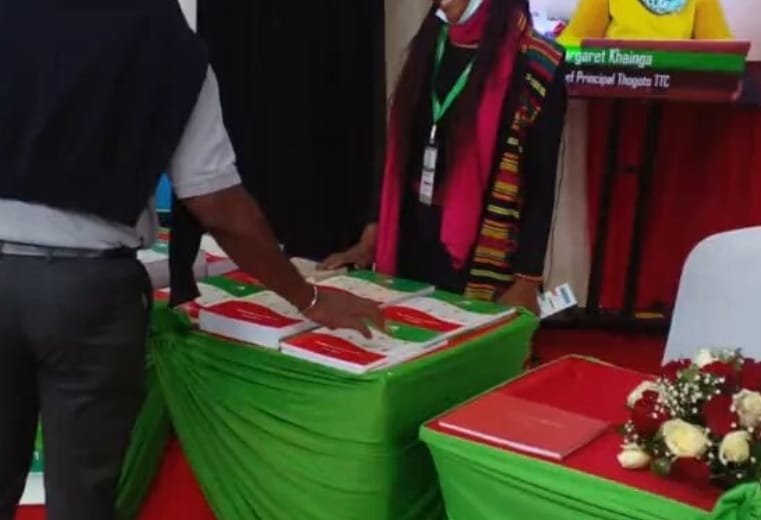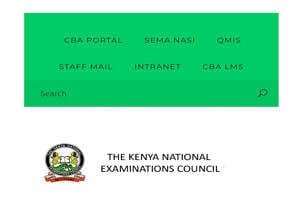Tough Proposals by Principals to Curb Cheating in KCSE Exams


Introduction to KCSE Exam and Cheating Issues
The Kenya Certificate of Secondary Education (KCSE) exams serve as a critical milestone in the Kenyan education system, marking the completion of secondary schooling and determining students’ eligibility for higher education opportunities. These exams hold substantial weight, as they not only assess a student’s academic abilities but also influence their future career prospects and opportunities. Consequently, the integrity of the KCSE is paramount, and any compromises to its credibility can have far-reaching effects on the education system as a whole.
However, the integrity of the KCSE exams is frequently threatened by rampant cheating practices. Cheating has become a significant issue that undermines the quality of education, as it negates the efforts of diligent students and creates an uneven playing field. Various methods of cheating have been reported, including the use of unauthorized materials, collusion among students, and even the involvement of school heads and examination officials. Such activities not only compromise the reliability of the examination results but also diminish the value of the KCSE, leading to a potential devaluation of educational qualifications in Kenya.
The ramifications of these cheating practices extend beyond the examination room, affecting both students and schools. Schools that fail to manage the integrity of the kcse 2024 exams may see their reputation damaged, resulting in decreased enrollment and trust from parents and the public. For students, getting caught in cheating scandals can lead to severe penalties such as disqualification from examinations, creating barriers to their educational and professional aspirations. Therefore, addressing these issues is vital for restoring the integrity of the KCSE system and ensuring a fair assessment of students’ capabilities.
Overview of Proposed Measures by School Principals
In response to the pervasive issue of examination cheating, especially concerning the upcoming KCSE 2024, school principals have come together to devise an array of measures aimed at combating this challenge. The collaborative efforts demonstrate a unified stance against malpractices in the education sector, emphasizing the importance of integrity in the examination process.
The proposals primarily focus on enhancing surveillance during the knec exams and improving the overall administration of examinations. Some school heads have advocated for the installation of advanced technology, such as biometric systems and CCTV cameras, in examination halls to monitor students closely. The rationale behind these suggestions is rooted in the belief that increased oversight will significantly deter students from engaging in dishonest practices.
Another noteworthy recommendation includes the implementation of stricter penalties for both students and educators found to be facilitating cheating. This measure aims to create a culture of accountability within schools. The principals argue that if students are aware of the severe consequences they may face, they will think twice before attempting any illicit activities during exams.
Furthermore, the need for a more comprehensive education on academic integrity has been highlighted. School heads propose that workshops and seminars be organized, focusing on the value of honesty and the long-term benefits of hard work and genuine achievement. This proactive educational approach is seen as essential in cultivating a mindset that values integrity among students.
In discussing the proposals, several school principals have noted the importance of their collective efforts, stating that only through collaboration can they hope to effectively curb exam cheating. The proposals not only reflect a pragmatic approach to the challenges faced in the KCSE exams but also signal a commitment to upholding educational standards and fairness within the assessment of students’ capabilities.
Implementation of Strict Surveillance Protocols
In light of the ongoing challenges regarding examination integrity, school heads are proposing a series of stringent surveillance protocols aimed at curbing exam cheating during the Kenya Certificate of Secondary Education (KCSE) 2024 examinations. One pivotal measure includes the introduction of closed-circuit television (CCTV) cameras in examination halls and surrounding areas. This technology will enhance monitoring capabilities, providing a real-time visual account of student conduct during the KNEC exams. With strategic placement of these cameras, any suspicious behavior can be swiftly identified and addressed, potentially serving as a deterrent against dishonest practices.
Moreover, schools intend to hire additional invigilators, thereby increasing the adult-to-student ratio in examination environments. This will not only help in maintaining order but will also create a vigilant atmosphere that discourages attempts at cheating. The presence of more invigilators reinforces the message that the examination process is taken seriously, and that any deviation from expected conduct will likely be observed and reported.
Technological integration plays a crucial role in modernizing the examination environment. Advanced monitoring software can be utilized to track student behavior, identifying patterns that may indicate cheating. For instance, systems that utilize biometric verification—such as fingerprint scanning—can ensure that authorized individuals are present during the exams. Furthermore, using handheld devices to monitor social media activity may help school heads identify communication among students during the KCSE 2024 exams, which is often a medium for sharing answers illicitly.
Through these enhancements in surveillance protocols, the aim is to create a more secure and fair examination environment. By adopting these stringent measures, school leaders hope to not only amplify the credibility of the KNEC exams but also instill a sense of discipline and honesty among students, which are essential qualities in their academic and future professional endeavors.
Revision of Exam Policies and Regulations
The recent dialogue among school heads regarding the integrity of KNEC exams has led to the proposal of significant revisions to existing exam policies and regulations. These changes aim to enhance the credibility of the examination process, particularly as we approach KCSE 2024.
One of the primary suggestions revolves around the implementation of more stringent identification processes for candidates. This could involve the introduction of biometric systems, such as fingerprint or facial recognition technology, ensuring that each student is verified before entering the examination hall. Such measures not only help in confirming the identity of each candidate but also act as a deterrent to potential impersonation, a common method of cheating in exams.
In addition to identification protocols, the revision of seating arrangements presents an opportunity to minimize collusion among students. The proposed changes may include randomized seating assignments to prevent students from sitting next to friends and relying on each other during the examination. By implementing a system where students are placed in a manner that limits their interaction, the risk of cheating could be significantly reduced.
Furthermore, establishing clear and definitive penalties for students caught attempting to cheat is crucial. The proposed revisions advocate for a graduated scale of punishments based on the severity of the offense, ensuring that students fully understand the consequences of their actions. Such clarity can serve as both a preventive and corrective measure against academic dishonesty. By defining penalties, school heads can foster a culture of integrity, whereby students recognize the importance of honesty during their KNEC exams.
Through these proposed policy changes, the goal is to create a more equitable examination environment, thereby potentially enhancing the overall quality of the educational system. The commitment by school heads to revise outdated practices reflects a proactive stance on curbing exam cheating and restoring faith in the evaluation of student performance.
Parental and Community Involvement in Exam Integrity
The integrity of examinations, particularly the Kenya Certificate of Secondary Education (KCSE) conducted by the Kenya National Examinations Council (KNEC), is a pressing concern for educators and policy makers alike. A significant contributor to maintaining the integrity of these vital assessments is the involvement of parents and the wider community. The role of parents is crucial; they serve as primary educators outside the school environment and significantly influence their children’s attitudes towards academic honesty. Engaging parents through workshops or seminars focused on the importance of ethical behavior in academia can foster a culture of integrity at home.
Furthermore, community engagement initiatives can enhance awareness about the detrimental effects of cheating, which often goes unchallenged in various social circles. By organizing community forums that address the implications of dishonest practices, school heads can create a platform for open dialogue. These discussions can emphasize the long-term consequences of compromising academic integrity and its detrimental effects on students’ futures. Promoting stories of successful individuals who achieved their educational qualifications without resorting to unethical means can serve as powerful motivators for students.
The establishment of local committees made up of parents, educators, and community leaders can play a pivotal role in curbing exam cheating. Such committees could be tasked with creating awareness campaigns that address the significance of exam integrity, particularly during the lead-up to the KCSE 2024. By rallying a collective commitment to uphold standards, these groups can galvanize community support and diligence in monitoring students’ behavior relating to exam preparations. Ultimately, when parents and communities unite in commitment to uphold academic values and serve as role models, they contribute significantly to the success of initiatives aimed at curbing exam cheating.
Technology Use in Combating Cheating
In recent years, technological advancements have become pivotal in addressing the challenges of cheating during the Kenya Certificate of Secondary Education (KCSE) exams. School heads have proposed the integration of various technologies to create a more secure examination process, thereby ensuring the integrity of the knec exams. One of the key technological solutions is biometric identification, which can significantly enhance the verification process of candidates entering the examination halls. By utilizing fingerprint or facial recognition systems, schools can ensure that only registered candidates participate, thus reducing identity fraud.
Another promising technological approach involves the use of mobile phone jammers during examinations. These devices can effectively disrupt mobile phone signals, preventing students from using their phones to access unauthorized materials or communicate with outside sources during the KCSE 2024 exams. The implementation of such measures aligns with the schools’ commitments to curbing exam cheating and upholding academic integrity. Moreover, this not only mitigates the chances of illicit resource access but also assures parents and stakeholders of robust examination management.
Additionally, online monitoring platforms represent a further step in leveraging technology against examination malpractices. These platforms can utilize advanced surveillance systems to monitor examination environments in real time. By deploying cameras in examination rooms and employing artificial intelligence to detect suspicious behaviors, school heads can bolster the integrity of the knec exams. Such oversight can deter potential cheaters, thereby reinforcing ethical examination practices. The strategic application of these technological tools demonstrates a comprehensive approach to overcoming the longstanding challenges associated with exam cheating and emphasizes a commitment to maintaining rigorous academic standards.
Challenges and Concerns over Proposed Measures
The implementation of stringent measures aimed at curbing exam cheating during the Kenya Certificate of Secondary Education (KCSE) 2024 presents several challenges and concerns that stakeholders must address. Financial constraints are a primary concern for many school heads, who often lack the resources needed to effectively enforce these measures. The cost of acquiring new technologies, such as surveillance cameras and anti-cheating software, can be prohibitively high. Moreover, schools that are already struggling with limited funding may find it difficult to allocate budgetary resources towards these initiatives without compromising other essential educational needs.
Resistance from students and parents also poses significant hurdles. Many students may perceive these checks as excessive or intrusive, leading to a culture of distrust between school administrations and their stakeholders. Parents may express concerns regarding the imbalance of sanctions imposed on students who might already be under tremendous academic pressure. This sentiment can create a challenging environment for school heads who are tasked with maintaining academic integrity while simultaneously ensuring the well-being of their students.
Additionally, the successful execution of proposed measures heavily relies on the proper training of staff responsible for enforcing the new protocols. School heads must ensure that teachers and administrators are equipped with the necessary skills to implement policies effectively. Without adequate training, the likelihood of mismanagement or misinterpretation of the intended measures increases, potentially undermining their effectiveness in curbing exam cheating. It is essential for schools to develop comprehensive training programs that address both the technological and ethical aspects of exam supervision.
These challenges demonstrate the complexities involved in the proposed measures to address cheating in the KCSE exams. A balanced approach that considers financial viability, stakeholder engagement, and thorough staff training is crucial for the success of these initiatives.
Case Studies of Other Countries’ Approaches to Exam Integrity
The challenge of exam integrity is a global issue, prompting numerous countries to adopt innovative measures aimed at curbing exam cheating. Comparative analysis reveals several successful case studies that may offer insights for Kenya’s approach to the KCSE 2024 examinations. Countries such as Singapore, South Korea, and Finland have implemented rigorous frameworks to uphold academic honesty effectively.
In Singapore, the Ministry of Education has taken a proactive stance, employing advanced technology and strict regulations to ensure examination integrity. Students are required to undergo identity verification processes using biometric systems before entering examination rooms. Furthermore, schools are mandated to have stringent supervision protocols in place. These measures have significantly reduced unauthorized access to examination materials and minimized opportunities for cheating, thus fostering a culture of honesty among students. The success of these practices showcases the critical role school heads play in reinforcing values of integrity within their institutions.
South Korea’s standardized testing system is another prime example. The country has adopted a multifaceted approach that includes utilizing surveillance technologies, including closed-circuit television (CCTV) to monitor testing environments. In addition, the collaboration between educational institutions and law enforcement agencies has strengthened efforts to apprehend individuals involved in cheating schemes. These partnerships illustrate the importance of a collective commitment from all stakeholders, including school heads and educational policy makers, to maintain exam integrity.
In Finland, the education system emphasizes trust and responsibility, which fosters intrinsic motivation among students to perform honestly. There are few standardized tests, with an emphasis on formative assessments that engage students in the learning process rather than purely focusing on results. This philosophy has significantly reduced the instances of exam-related malpractice, demonstrating that promoting an ethical culture can be just as effective as implementing strict regulatory measures.
Overall, these international case studies offer valuable lessons for Kenya as it looks to refine its strategies for the KCSE exams. By adopting a combination of technological innovations and cultural reforms, it is possible to create an examination system that discourages cheating and promotes academic integrity.
The Future of KCSE Exams and Academic Integrity
The Kenya Certificate of Secondary Education (KCSE) examinations continue to serve as a critical determinant of students’ academic paths and future opportunities. However, the integrity of these exams has faced significant challenges over the years, particularly concerning cheating and malpractice. As school heads propose tough measures to curb exam cheating, the need for a robust framework to uphold academic integrity becomes paramount. The educational landscape in Kenya is at a crossroads, and the decisions made today will undoubtedly shape the future of KCSE exams.
Recent proposals aimed at reinforcing the credibility of the KCSE exams have emphasized the importance of a collaborative approach involving various stakeholders, including educators, parents, and students. By fostering a culture of honesty and transparency, school heads can lay the groundwork for a more equitable assessment system. This is not only crucial for the validity of the examinations but also for ensuring that the qualifications earned reflect true academic prowess, an essential element in the development of a competent workforce.
Looking ahead, the successful implementation of these initiatives may enhance the overall educational environment, making KCSE exams a respected standard of achievement rather than a mere hurdle to be crossed. It is vital for the educational community to engage in ongoing dialogues regarding best practices for maintaining academic integrity. Embracing technology, providing better training for examiners, and instilling a sense of responsibility within students are just a few strategies to achieve this goal.
The future of KCSE exams hinges on a shared commitment to uphold the principles of honesty and fairness. Thus, addressing the challenges related to exam cheating must remain a priority within Kenyan educational institutions. In conclusion, it is imperative that all stakeholders work collectively to ensure that the KCSE remains a credible and respected measure of student achievement, one that ultimately supports the academic and professional aspirations of young Kenyans.







